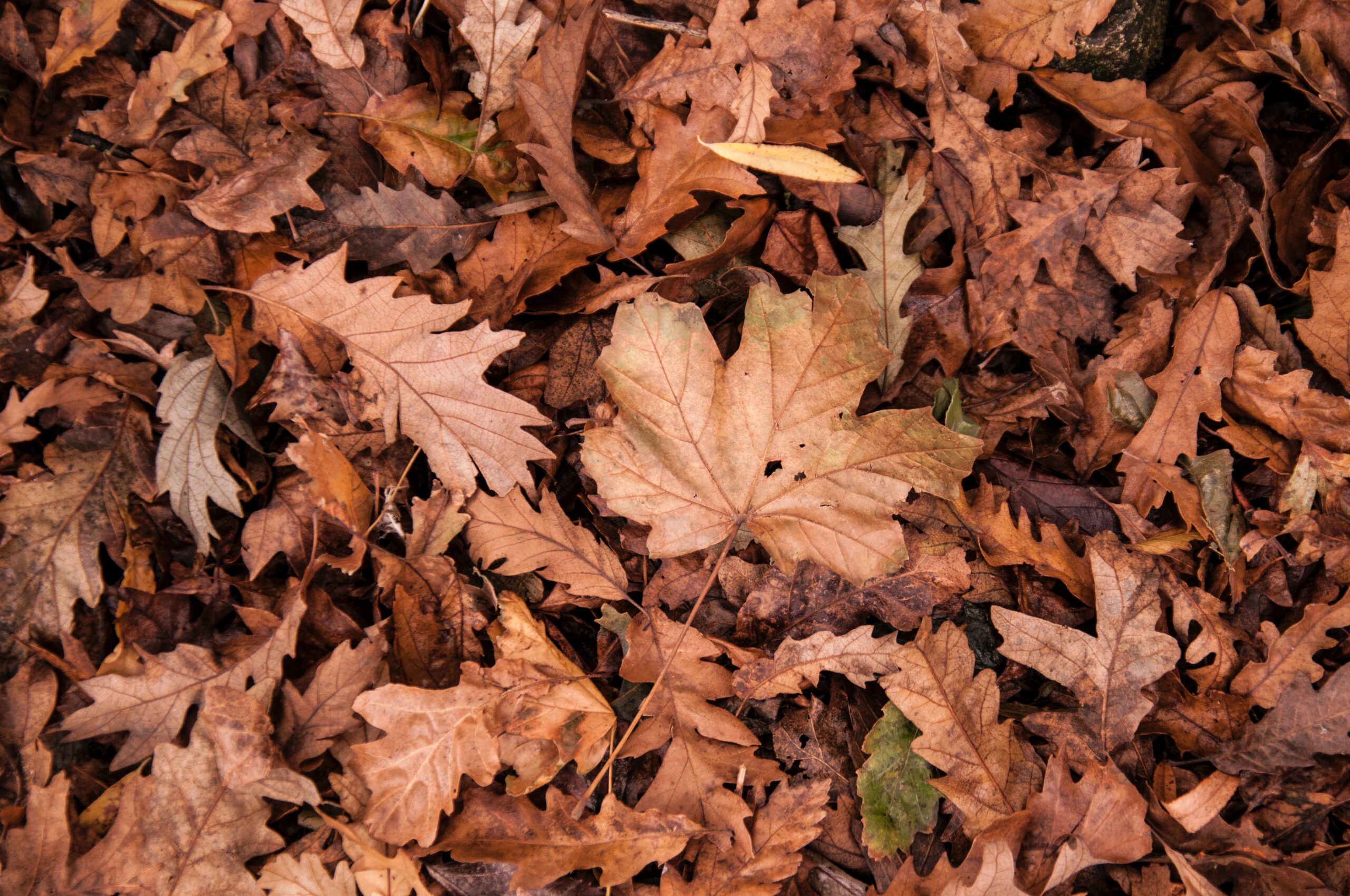Some Questions and Some Answers
By Dewey Turner
Hey Dewey,
I’m out in my yard raking leaves and wondering what the heck’s the point. I fail to see the benefit. I really do. Other than being able to spot my dog’s poop and avoid stepping in it, of course. I mean, tidy yard—yeah, I get that. But it’s not as if my leaves are bothering anybody, other than the wind maybe blowing a few into the neighbor’s yard. Plus it hurts my back, all this bending over. Plus it’s a total pain getting all the leaves into these giant bags and hauling them out to the curb for pickup. And they won’t let you burn them in your backyard anymore. Not to mention the fact that every kid I know who’s ever jumped into a pile of leaves ended up bruising their tailbone, thank you very mulch.
Leaf Me Alone
Dear Leaf,
Let me stop you right there. Seriously. Just stop. Stop raking. Stop bagging. Stop tidying up your yard. You know what they do with those leaves you’re dragging to the curb? Sure, there’s some composting. But most of your so-called “yard waste” is trashed or burned, both contributing to the environmental devastation we’re already wreaking on our poor little planet. If your leaves rot in landfills they release tons of harmful methane that speeds up climate warming. Burn them and you’re sending tons of carbon into the atmosphere and speeding up climate warming even more. Then there’s the straight up pollution and toxic chemical release from burning that exacerbate respiratory problems, especially in older folks and kids. Not to mention the hundreds of millions of tax dollars spent collecting and “disposing” of all those bloated leaf bags. And don’t even get me started on those murderous gas-powered leaf blowers.
Leaves are rich in nutrients, and as they break down they become natural mulch for flower beds and add nitrogen back into the earth, necessary for plant growth, plant food processing, production of chlorophyll, etc. (That’s straight out of my old biology text, btw.) Speaking of good things, earthworms love to munch out on fallen leaves, and what they shit out is, essentially, soil. If your neighborhood is anything like mine, the developers scraped off all the topsoil when they did their site prep, leaving us poor schmucks with yards that are mostly rocks and clay. You can truck in replacement topsoil, and probably should if you can afford it. But you should also leave your leaves alone and let the earthworms do their thing. It was probably the Buddha who said it best: Worm poop is yard gold. Yet another good reason not to rake.
One more thing. That leaf cover, if you do leave it alone, provides shelter for all sorts of wildlife now mostly MIA in our over-sanitized, bugless world: salamanders, frogs, rodents, cocooned moths, bumblebee queens, on and on and on. Leaves put a roof over their sweet little heads and give them a place to call temporary home when it’s cold out. Rake your yard and all those critters have nowhere to go, no way to survive. Also, you’re cursed for all time for having destroyed their ecosystem.
You know how many springtails can live under just one square meter of “leaf litter” (as people call it, but shouldn’t)? 40,000 to 50,000. You know what springtails are? Look it up. I’m not doing all the work here. You’ve got time. It’s not as if you have a yard that needs raking anymore.
***
Hey Dewey,
What are the 14 Stations of the Cross? I mean for regular people?
Been Meaning to Ask
Dear Been,
First, don’t let your totally understandable antipathy for those odious Christian nationalists wrecking what’s left of America cloud your vision. Most Christians are regular people, too, and if they find prayerful meditation over the Stations of the Cross helpful then I’m all for it. You don’t have to be a believer to appreciate the sacrifice—and the moments of kindness—in the Passion story, and to know that there can be solace and comfort—sometimes deep, centering solace and comfort—in ritual. And how can we not be empathetic when contemplating the stages of Jesus’, or anybody’s, final journey: (1) Condemned. (2) Forced to bear the cross. (3) Falling (4) Seeing his mom. (5) Relinquishing the cross to Simon of Cyrene, who’s ordered to carry it for him. (6) Encountering Veronica, a bystander, who wipes his face with her veil. (7) Falling a second time. (8) Hearing the women of Jerusalem crying at his suffering. (9) Falling a third time. (10) Stripped of his clothes. (11) Nailed to the cross. (12) Dying on the cross. (13) Taken down. (14) Interred and left alone in the sepulcher.
It’s different, of course, for us other regular folks, the secularists, but we can have our Stations of the Cross, too, in a way—anything ritualistic that provides opportunity for centering, for mindfulness, and for gratitude. Mine starts first thing in the morning, hours before anyone else is awake, when I crawl out of bed. It may sound blasphemous to devout Christians, but I don’t mean for it to. Thich Nhat Hanh says everything in life is sacred, or ought to be, and I feel that way, too.
My Stations of the Cross
(1) Stumble to the bathroom, thankful that my apparently shrinking bladder only woke me twice during the night. (2) Turn on the coffee maker and take miracle pills for my wonky heart. (3) Open curtains to the backyard and gaze in wonder at the moon or what’s left of it in the fading night sky. (4) Let out the dog and hope he doesn’t wake the neighbors by barking his fool head off at deer and foxes and groundhogs and squirrels and snakes and god knows what else has managed to survive in the small wooded area beyond the backyard fence in our aggressively suburban subdivision. (5) Turn off the night light we always leave on as if there might be lost ships somewhere out there that need help navigating their way into port. (6) Fill the dog’s dish and let him back in to have at it, marveling at how he knows from all the way outside as soon as I open the cupboard and scoop out his food because he can hear sounds four times farther away than a mere human like me, and his sense of smell is as much as 100,000 times stronger. (7) Doctor my coffee and take the first sip knowing there’s nothing else the rest of the morning for which I’ll be as grateful unless it’s taking a decent shit. (8) Turn on the computer and read the local paper, Washington Post, New York Times, and Heather Cox Richardson’s “Letter from an American,” thankful for the Fourth Estate and in agreement with Thomas Jefferson: “[W]ere it left to me to decide whether we should have a government without newspapers, or newspapers without a government, I should not hesitate a moment to prefer the latter.” (9) Check Facebook and read emails. Practice electronic Norwegian death cleaning. Enjoy the fleeting satisfaction of an uncluttered inbox. (10) Check the hourly weather and 10-day prediction on Weather.com to prepare for what’s to come—and then promptly forget so the future remains a mystery. (11) Do the New York Times Spelling Bee and cheat if necessary to win Queen Bee honor. (12) Take (hopefully decent) shit, its own reward. (13) Clean CPAP tubing, headgear, nasal pillow, and water chamber, and give thanks for forced air. (14) Let the dog out again and hope he doesn’t bark his fool head off and wake the neighbors, though perhaps they’re up by now as well and going through their own Stations of the Cross, which would be something to be thankful for as well.
***
Hey Dewey,
How do you know when you’re over your divorce?
Still Bent Out of Shape
Dear Bent,
When even you get bored hearing yourself talk about it.
***
Dewey Turner spent much of his childhood in Polk County, Florida, and has been trying to leave ever since. But like James Joyce, self-exiled from Dublin, he keeps returning in one way or another. He reports–with some consternation but no real surprise–that a great number of the kids he knew when he was a boy grew up to become Florida Man.
GOT A QUESTION FOR “HEY DEWEY”? Email [email protected].


